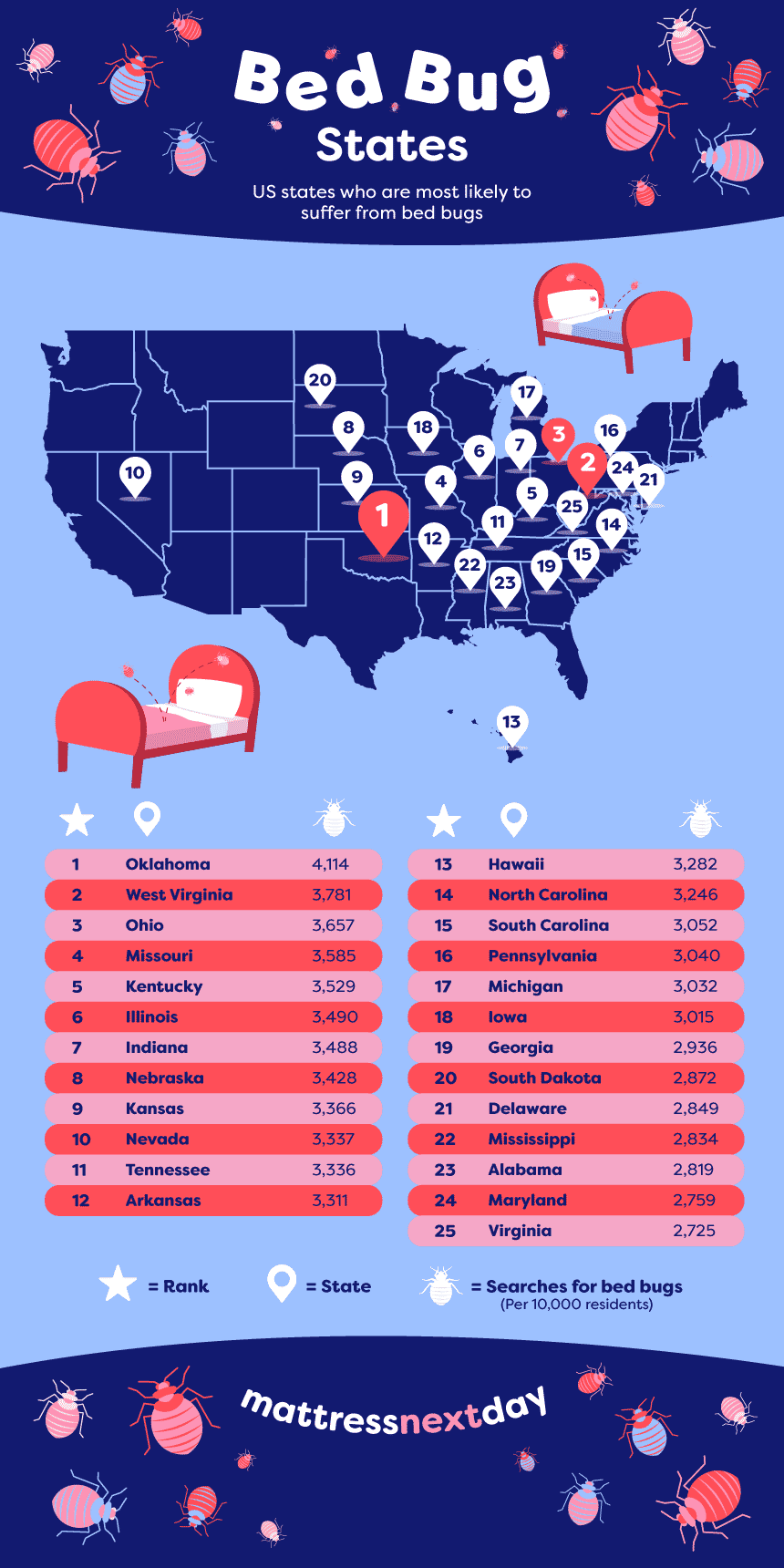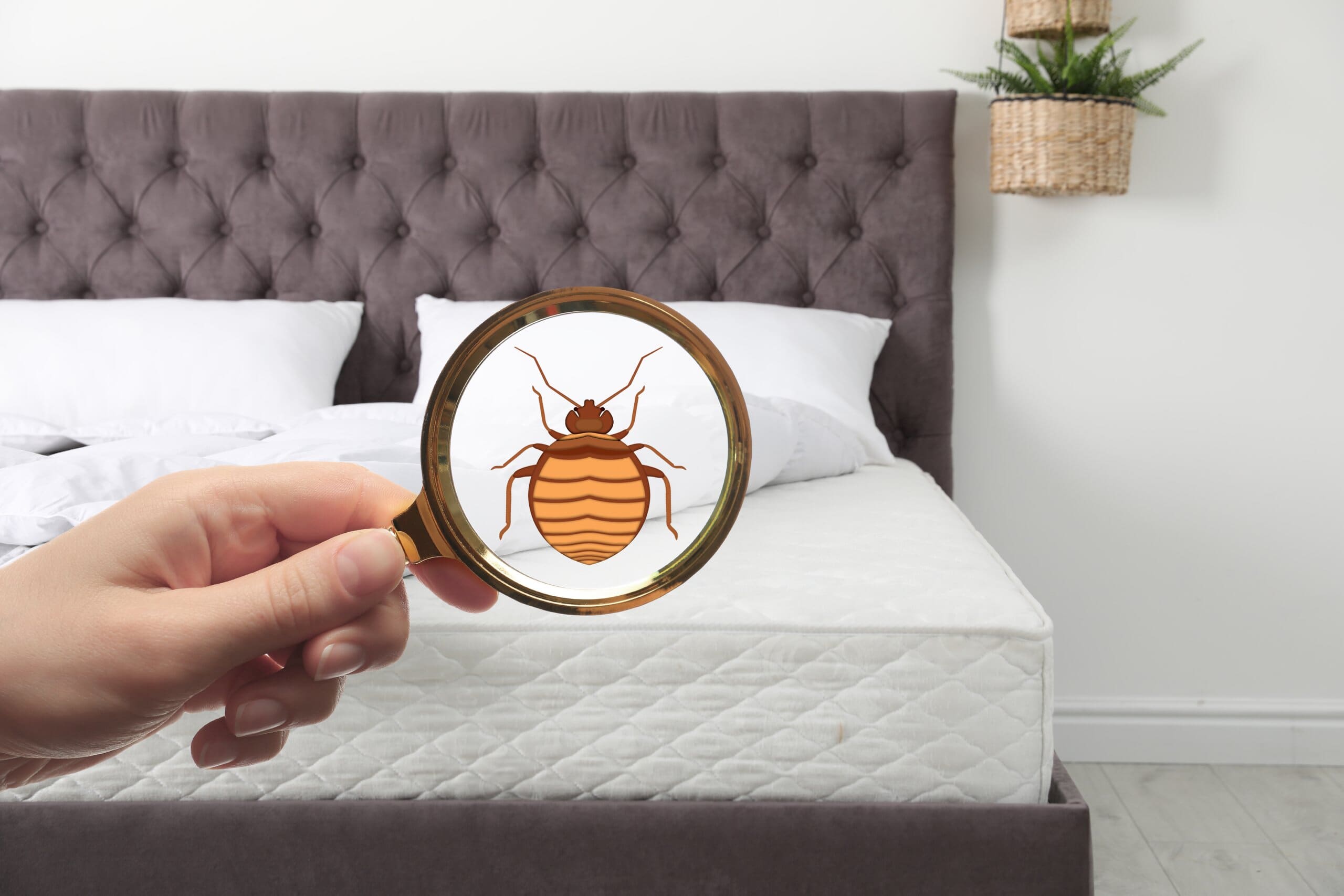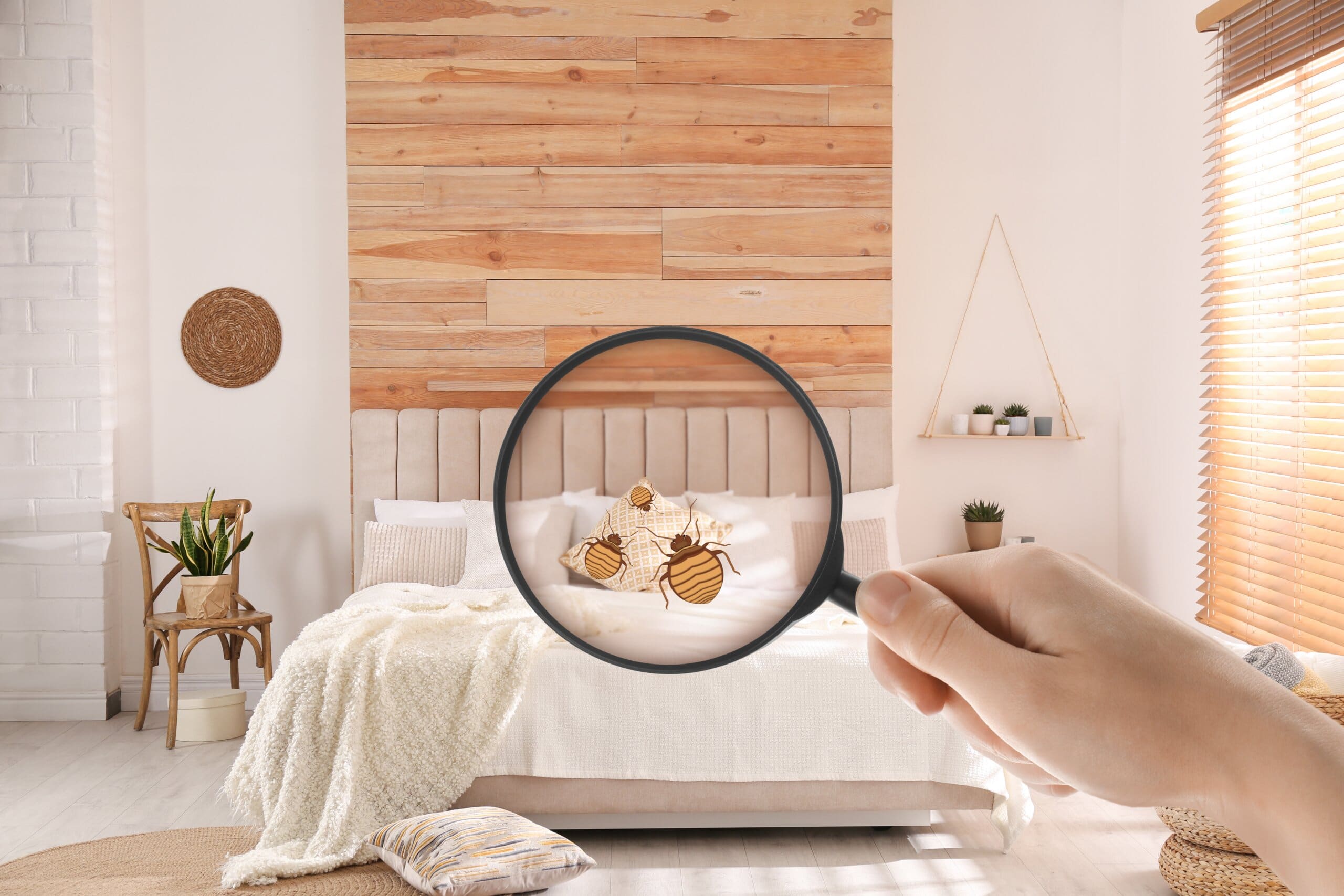As the saying goes, ‘out with the old, in with the new’, and this couldn’t be truer at the start of the new year, when many of us declutter and deep clean our homes.
However, one thing to bear in mind are pesky bed bugs. They shot to infamy in Europe last year with their takeover of Paris, and rumours they’d made it over the channel to London; but it turns out, they’re just as rife in the USA too. In fact, over the last 12 months, there have been a huge 7,266,840 Google searches across America for bed bugs; showing just what a huge issue they can be.
Once you’ve gotten them, they can be extremely hard to get rid of – although it can be done. So, if you’re worried about these troublesome bugs, read on as we uncover the states that are most at risk of having bed bugs, as well as tips on how to prevent them entering your home.

Oklahoma is the most at risk of bed bugs
We’ve analysed the search data, and Oklahoma comes top for bed bugs, at a huge 4,114 searches for them per 10,000 residents.
However, there are several states that aren’t far behind, with West Virginia (3,781), Ohio (3,657), Missouri (3,585), and Kentucky (3,529) making up the top five.
18 states had more than 3,000 searches per 10,000 residents; suggesting people are either actively dealing with them, or are looking for ways to prevent them. Other states that made it into the top 10 are Illinois, Indiana, Nebraska, Kansas, and Nevada.
Whilst many people might assume that larger cities such as New York or LA are more prone to bed bugs due to the number of people travelling to them; it turns out this isn’t true, as New York came 34th, and California came 36th.
Idaho is the least at risk of bed bugs
On the other end of the spectrum, Idaho has the least number of searches for bed bugs, at 1,893 per 10,000 people; making it the state least likely to suffer from them. It’s also the only state to have less than 2,000 searches, with Montana in second place at 2,019.
Oregon, Minnesota, and Utah all made it into the top five; with Washington, Florida, Wyoming, Connecticut, and New Jersey all the top 10 least likely to get bed bugs, confirming there’s no specific area in the US that they’re concentrated in.
How to prevent getting bed bugs
Bed bugs can be hugely difficult to get rid of once you’ve gotten them; and the problem is, they’re so small, you often don’t notice you have them until you start to see the telltale bite marks.
As with many things, prevention is easier than cure; so if you’re concerned about bringing bed bugs into your home, have a read of these tips.

1. Maintain cleanliness
Bed bugs don’t care about how hygienic your home is, but they do thrive in areas that are cluttered, as it makes them harder to find. So, make sure you keep your living space as tidy as possible, and regularly vacuum your carpets, curtains, and furniture; paying extra attention to cracks and crevices, where they may be hiding. Make sure you remove any vacuum bags from out of your home immediately, in case you hoovered any up.
2. Cover your bedding
Every time you change your bedding, do a quick inspection to see if you can spot bed bugs – they’re reddish-brown in colour, and often leave small, dark faecal spots. Once you’re certain you don’t have any, cover your mattresses and pillows in encasements, which will form a protective barrier, should you bring bed bugs into your home.
Your bedding is one of the most common places for bed bugs to be found, so make sure you have a read of our guide on protecting your mattress from bed bugs, for more information.
3. Be wary of second hand furniture
Antique furniture may be chic, but whether you’re buying second hand furniture at a car boot sale, or you’re inheriting a few pieces from a loved one, make sure you check them thoroughly before you bring them into your home, as that can be how the infestation begins.
The same goes if you’re living in a shared house. Whilst you can inspect your own furniture, you won’t be able to do so for others, so adding in a door sweep and sealing any gaps in your skirting boards and plug sockets, will help to discourage bed bugs from moving between rooms.
4. Be careful when travelling
One of the main culprits of bed bugs is hotel rooms; so before you bed down for the night, inspect the bedding and other areas of the room for any dark spots. Bed bugs may transfer onto your clothing and luggage, so try and keep your suitcase off the floor if possible, and as soon as you get home, wash your clothes on a high heat to kill any potential bugs that may have crawled onto them.
If you're headed to the US for a holiday and are worried about bringing them back with you, you should read our guide on protecting your mattress from bed bugs, which will give you tips on preventing bringing them back from holiday, too.
5. Be wary in public
It’s not just hotel rooms that can have them – anywhere public could too, as people who have bed bugs will likely have them on their clothes. Whether you’re about to sit down on public transport, a doctor’s waiting room, or even a seat at the cinema; do a quick scan to check for those tell-tale reddish brown marks to check it’s safe to do so.
With some precaution, hopefully you’ll be free from bed bugs forever. However, if you’ve fallen victim to them, once you’ve managed to exterminate them, you’ll probably want to invest in some new bedding – and luckily, we can help. From memory foam mattresses through to divan beds and more, we’ve got you covered.


Methodology
Source:
- https://www.bedbugreports.com/
Bed bug report data was compiled for various locations across the US. These locations were then ordered from highest to lowest based on the number of reports.






